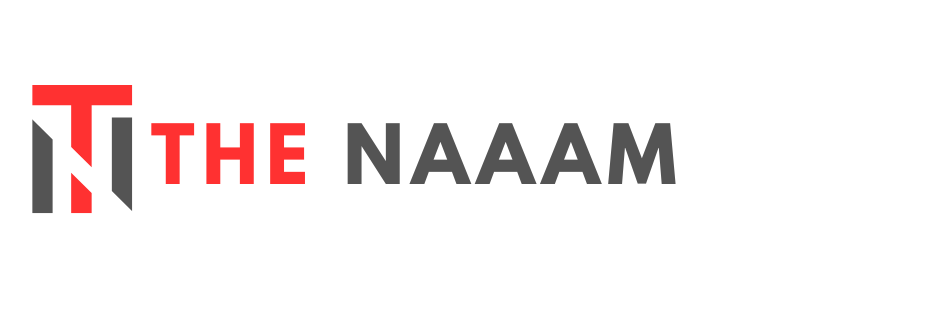Table of Contents
ToggleDiscovering the Travel Aspect of Market Research Analyst Roles
Market research analysts play a crucial role in helping businesses make informed decisions by analyzing market conditions, consumer behavior, and industry trends. But do these professionals spend their days confined to offices, or does their work involve significant travel? Let’s explore.
Nature of Work
Market research analysts gather and analyze data to understand market conditions and consumer preferences. Their duties include conducting surveys, interviews, and focus groups, as well as analyzing sales trends and competitor strategies. While much of their work can be done remotely using technology, certain aspects require on-the-ground investigation.
Travel Requirements
While not all market research analysts travel extensively, the nature of their work often demands it. Travel may be necessary to conduct field research, visit clients, attend industry conferences, or gather data from specific geographic locations. The extent of travel varies depending on the employer, industry, and project requirements.
Travel in Market Research
Field Research
Field research involves collecting data directly from consumers or businesses within their natural environments. This could mean visiting retail stores, observing consumer behavior, or conducting interviews in various locations. Field research provides firsthand insights that are crucial for accurate analysis and decision-making.
Client Meetings
Market Research Services often meet with clients to understand their needs, present findings, and discuss strategies. These meetings may require travel to client offices or other locations, especially if clients are located in different cities or countries. Building strong client relationships often involves face-to-face interactions, making travel essential.
Industry Conferences
Attending industry conferences and trade shows allows market research analysts to stay updated on the latest trends, technologies, and best practices. These events provide networking opportunities, access to industry experts, and insights into emerging markets. While not all conferences require travel, many analysts consider them valuable for professional development.
Challenges and Benefits of Travel
Challenges Faced
Traveling for work can be challenging due to time away from home, disruptions to routine, and logistical issues. Market research analysts may encounter delays, flight cancellations, or unfamiliar environments. Balancing work commitments with personal life can also be demanding, especially for frequent travelers.
Professional Development
Despite challenges, travel offers numerous benefits for market research analysts. It provides opportunities for professional growth, exposure to diverse markets, and firsthand insights that enhance analytical skills. Meeting clients face-to-face can strengthen relationships and improve communication, leading to better outcomes for projects.
Exposure to Diverse Markets
Traveling allows Markets Research analysts to immerse themselves in different cultures, markets, and consumer behaviors. This exposure is invaluable for understanding global trends, identifying new opportunities, and adapting strategies to local contexts. It broadens perspectives and fosters creativity in problem-solving.
Market Research Analyst Education Requirements
| Educational Pathway | Description |
|---|---|
| Bachelor’s Degree | Most employers prefer candidates with a bachelor’s degree in fields such as marketing, business administration, statistics, economics, or a related field. |
| Specialized Courses | Pursuing specialized courses or certifications can enhance a market research analyst’s skill set and marketability. Courses in market research, consumer behavior, data analysis, and statistics can provide valuable insights and practical knowledge relevant to the profession. |
| Master’s Degree (Optional) | Obtaining a master’s degree in marketing research, business analytics, or a related field can further enhance career prospects and open up opportunities for advancement. |
| Internships and Work Experience | Practical experience through internships, co-op programs, or entry-level positions is highly beneficial for aspiring market research analysts. |
| Continuing Education | Market research analysts should stay updated on industry trends, emerging technologies, and best practices through continuing education, workshops, seminars, and professional development opportunities. |
| Soft Skills | Market research analysts should possess strong interpersonal skills, critical thinking abilities, and effective communication skills. |
| Certifications | Obtaining relevant certifications can demonstrate expertise and credibility in specific areas of market research. |
Overall, a combination of formal education, practical experience, and continuous learning is key to becoming a successful market research analyst. By acquiring the necessary skills and qualifications, individuals can pursue rewarding career opportunities in this dynamic and growing field.
Tools and Technologies
Advancements in technology have transformed the way market research is conducted, reducing the need for extensive travel in some cases. Market research analysts utilize various tools and software for data collection, analysis, and communication. Online surveys, social media monitoring, and predictive analytics enable remote work and collaboration.
Qualifications and Skills
To succeed as a market research analyst, individuals need a combination of education, skills, and experience. While a bachelor’s degree in marketing, business, statistics, or a related field is typically required, employers also value analytical abilities, communication skills, and attention to detail. Continuing education and professional certifications can enhance career prospects.
Career Outlook
The demand for market research analysts is expected to grow as businesses increasingly rely on data-driven insights to gain a competitive edge. Industries such as healthcare, technology, and finance offer promising opportunities for employment. Salaries vary based on factors such as experience, education, and geographic location, with median annual wages exceeding the national average.
Market Research Analyst Career Path
A career as a market research analyst offers a dynamic and rewarding path for individuals interested in analyzing market trends, consumer behavior, and competitive landscapes to drive strategic business decisions. Here’s a comprehensive overview of the typical career path for aspiring market research analysts:
Education and Entry Level Positions:
- Bachelor’s Degree: The journey typically begins with earning a bachelor’s degree in fields such as marketing, business administration, statistics, economics, or a related discipline. This provides a foundational understanding of marketing principles, research methodologies, and data analysis.
- Internships and Entry-Level Positions: Gaining practical experience through internships, co-op programs, or entry-level positions is crucial for building relevant skills and industry knowledge. These opportunities allow individuals to apply theoretical concepts in real-world scenarios and develop valuable insights into market research practices.
Early Career Development:
- Junior Market Research Analyst: Entry-level positions as junior market research analysts involve assisting senior analysts in conducting research, collecting data, and analyzing market trends. Junior analysts gain hands-on experience with research tools, methodologies, and data interpretation techniques.
- Specialized Training: Employers may provide specialized training or mentorship programs to further develop the skills and competencies of junior analysts. This includes learning advanced analytical techniques, research methodologies, and industry-specific knowledge relevant to their role.
Mid-Level Roles and Advancement:
- Market Research Analyst: With experience and demonstrated proficiency, individuals progress to roles as market research analysts. Responsibilities include designing research studies, analyzing data, generating insights, and preparing reports for clients or stakeholders.
- Project Management: Experienced market research analysts may transition into project management roles, where they lead research initiatives, oversee project teams, and ensure timely delivery of research findings. Project managers are responsible for coordinating research activities, managing budgets, and maintaining client relationships.
Senior Leadership and Management Positions:
- Senior Market Research Analyst: Senior analysts take on more strategic responsibilities, such as developing research methodologies, identifying market opportunities, and providing actionable insights to support business decision-making. They may also mentor junior analysts and contribute to the development of departmental strategies.
- Director or Managerial Roles: Advancement to director or managerial positions involves overseeing entire research departments or teams. Directors are responsible for setting departmental goals, managing resources, and aligning research efforts with organizational objectives. They play a key role in shaping research strategies, identifying growth opportunities, and driving innovation within the organization.
Specialization and Career Growth:
- Areas of Specialization: As market research analysts gain experience, they may choose to specialize in specific industries, market segments, or research methodologies. Specializations could include consumer behavior analysis, competitive intelligence, product research, or market segmentation.
- Continuing Education and Certifications: Continuous learning through advanced degrees, certifications, and professional development programs is essential for staying abreast of industry trends and expanding career opportunities. Certifications such as the Professional Researcher Certification (PRC) or industry-specific credentials can enhance credibility and expertise.
Executive Leadership and Consultancy:
- Executive Leadership: Exceptional market research professionals may ascend to executive leadership positions, such as Chief Marketing Officer (CMO) or Vice President of Market Research. These roles involve shaping organizational strategies, driving innovation, and leading cross-functional teams to achieve business objectives.
- Consultancy: Experienced market research analysts may opt for careers in consultancy, where they provide expert advice and strategic guidance to clients across various industries. Consultants leverage their in-depth knowledge of market research principles, industry trends, and analytical skills to deliver value-added solutions to clients.
Soft Drink Industry Insights Unlocking Opportunities
The survey conducted by the market research firm provided valuable insights into the evolving landscape of the soft drink industry, helping stakeholders navigate challenges and capitalize on opportunities for growth and innovation. By leveraging the findings of A Market Research Firm’s Survey Of Soft Drinks, companies can develop targeted marketing strategies, product innovations, and competitive positioning to meet the changing demands of consumers in the dynamic beverage market.
Market Research Analyst Qualifications
Becoming a successful Market Research Analyst Qualifications requires a combination of educational qualifications, skills, and personal attributes. Employers seek candidates who can effectively gather and analyze data, interpret market trends, and provide actionable insights to drive strategic decision-making. Here are the key qualifications necessary to excel in this role:
Educational Background:
-
- Bachelor’s Degree: A bachelor’s degree in fields such as marketing, business administration, statistics, economics, psychology, or a related discipline is typically required. This provides a solid foundation in research methodologies, data analysis, and marketing principles.
- Advanced Degrees (Optional): While not always mandatory, obtaining a master’s degree in market research business analytics, or a related field can enhance job prospects and offer advanced training in quantitative analysis, statistical methods, and research techniques.
Analytical Skills:
-
- Quantitative Analysis: Market research analysts must possess strong quantitative skills to analyze numerical data, interpret statistical findings, and identify trends or patterns. Proficiency in statistical software such as SPSS, SAS, or R is often required to conduct complex data analysis.
- Qualitative Analysis: In addition to quantitative analysis, analysts should be adept at conducting qualitative research methods such as focus groups, interviews, and surveys to gather insights into consumer behavior, preferences, and attitudes.
Research Methodologies:
-
- Survey Design: Designing effective surveys that elicit meaningful responses from target audiences requires knowledge of survey methodology, question formulation, and sampling techniques. Analysts should be able to design surveys that yield reliable and valid data for analysis.
- Secondary Research: Proficiency in conducting secondary research using databases, industry reports, and academic journals is essential for gathering existing data and literature relevant to the research objectives.
Data Interpretation and Reporting:
-
- Data Visualization: Market research analysts should be skilled in translating complex data into clear and compelling visualizations such as charts, graphs, and dashboards. This facilitates communication of key findings and insights to stakeholders effectively.
- Report Writing: Writing comprehensive research reports that summarize findings, analyze results, and provide actionable recommendations is a critical aspect of the role. Analysts should be able to convey complex information in a concise and accessible manner.
Communication Skills:
-
- Verbal Communication: Effective verbal communication skills are essential for presenting research findings, facilitating group discussions, and interacting with clients or stakeholders. Analysts should be able to articulate complex concepts clearly and persuasively.
- Written Communication: Strong written communication skills are necessary for drafting research proposals, reports, presentations, and client correspondence. Analysts should demonstrate proficiency in grammar, syntax, and formatting to convey information professionally.
Attention to Detail:
-
- Accuracy: Market research analysts must pay close attention to detail to ensure the accuracy and reliability of research findings. Errors or inconsistencies in data collection, analysis, or reporting can undermine the credibility of the research.
- Thoroughness: Thoroughness in research planning, execution, and documentation is essential for conducting rigorous and methodologically sound studies. Analysts should meticulously review data, cross-check information, and validate findings to maintain quality standards.
Problem-Solving Abilities:
-
- Critical Thinking: Market research analysts should possess strong critical thinking skills to evaluate research questions, formulate hypotheses, and develop research designs that address business objectives effectively.
- Problem-Solving: The ability to identify challenges, troubleshoot issues, and propose solutions is crucial for overcoming obstacles encountered during the research process. Analysts should be resourceful and adaptable in finding creative solutions to complex problems.
Interpersonal Skills:
-
- Collaboration: Collaborating with cross-functional teams, clients, and external partners is common in the role of a market research analyst. Strong interpersonal skills such as teamwork, diplomacy, and conflict resolution are essential for fostering productive relationships and achieving project goals.
- Client Management: Building rapport with clients, understanding their needs, and managing expectations are integral aspects of the job. Analysts should demonstrate professionalism, responsiveness, and client-centricity in all interactions.
Industry Knowledge:
-
- Market Understanding: A deep understanding of market dynamics, industry trends, and competitive landscapes is essential for conducting effective market research. Analysts should stay informed about changes in consumer behavior, technological advancements, and regulatory developments relevant to their industry or sector.
- Product or Service Knowledge: Familiarity with the products, services, and offerings of the client or organization being researched is advantageous for contextualizing findings and providing strategic recommendations tailored to specific business needs.
Ethical Conduct:
-
- Confidentiality: Market Research Firm analysts must adhere to strict ethical guidelines regarding confidentiality, privacy, and data protection. They should handle sensitive information responsibly and ensure compliance with regulatory requirements such as GDPR or HIPAA when dealing with personal or proprietary data.
- Integrity: Maintaining integrity, objectivity, and impartiality in the research process is essential for upholding the credibility and reliability of findings. Analysts should avoid biases, conflicts of interest, or unethical practices that could compromise the integrity of the research.
Market Research Analyst Skills
Market Research Analyst Skills play a crucial role in helping businesses make informed decisions by gathering, analyzing, and interpreting data about market trends, consumer behavior, and competitive landscapes. To excel in this dynamic and fast-paced field, primary market research analysts require a diverse set of skills that enable them to conduct research effectively, derive meaningful insights, and communicate findings to stakeholders. Here are the key skills essential for success as a market research analyst:
Analytical Skills:
- Ability to analyze complex data sets, identify patterns, and draw insightful conclusions.
- Proficiency in statistical analysis, data interpretation, and quantitative research methods.
- Strong critical thinking abilities to evaluate research methodologies and data validity.
Research Methodologies:
- Knowledge of various research methodologies such as surveys, interviews, focus groups, and observational studies.
- Familiarity with both quantitative and qualitative research techniques and their respective applications.
- Experience in designing research studies, developing questionnaires, and sampling strategies.
Data Interpretation and Visualization:
- Skill in translating raw data into actionable insights through data visualization tools such as charts, graphs, and dashboards.
- Ability to effectively communicate complex findings to non-technical stakeholders using visual aids.
- Proficiency in data analysis software such as SPSS, SAS, R, or Python for data manipulation and visualization.
Market Understanding:
- Deep understanding of market dynamics, industry trends, and competitive landscapes within specific sectors or markets.
- Awareness of emerging technologies, consumer preferences, and regulatory changes impacting the industry.
- Ability to assess market opportunities and threats to inform strategic decision-making.
Communication Skills:
- Strong written communication skills for drafting research reports, presentations, and client correspondence.
- Clear and concise verbal communication skills for presenting findings, facilitating discussions, and interacting with clients.
- Ability to tailor communication style and content to different audiences, including executives, clients, and internal teams.
Problem-Solving Abilities:
- Aptitude for identifying research objectives, formulating hypotheses, and designing research methodologies to address business challenges.
- Creative problem-solving skills to overcome obstacles encountered during the research process.
- Flexibility to adapt research approaches based on evolving project requirements or unforeseen circumstances.
Attention to Detail:
- Meticulous attention to detail to ensure accuracy, consistency, and reliability of research findings.
- Thoroughness in data collection, validation, and analysis to minimize errors and biases.
- Rigorous quality assurance processes to maintain the integrity and validity of research outcomes.
Project Management Skills:
- Ability to manage multiple research projects simultaneously, prioritize tasks, and meet deadlines.
- Strong organizational skills to coordinate research activities, allocate resources, and track project progress.
- Proficiency in project management tools and methodologies to streamline workflows and optimize efficiency.
Interpersonal Skills:
- Collaborative mindset to work effectively with cross-functional teams, clients, and external partners.
- Diplomacy and tact in handling sensitive information, resolving conflicts, and managing stakeholder expectations.
- Empathy and active listening skills to understand client needs, preferences, and feedback.
Continuous Learning and Adaptability:
- Commitment to ongoing professional development, staying updated on industry trends, and acquiring new skills.
- Agility to adapt to changing market conditions, technological advancements, and evolving research methodologies.
- Openness to feedback, willingness to learn from experiences, and resilience in the face of challenges.
By honing these skills, market research analysts can effectively navigate the complexities of the market research landscape, deliver valuable insights, and drive strategic decision-making for businesses across various industries.
Understanding Market Research Analyst Salaries
The Market Research Analyst salary varies based on location, experience, and industry. On average, in the United States, market research analysts earn between $40,000 to $80,000 annually. However, factors such as geographic location, educational background, and industry specialization can impact earnings.
For instance, analysts in metropolitan areas or high-demand industries may earn higher salaries. Advanced degrees and certifications can also increase earning potential. Overall, market research analysts enjoy competitive salaries with opportunities for growth.
while not all market research firms analysts travel extensively, it is a common aspect of the profession. Travel is necessary for conducting field research, meeting clients, and staying informed about industry trends. Despite challenges, travel offers valuable opportunities for professional development and exposure to diverse markets.












